High-Level Policy Session 3 : Building Confidence and Security in the use of ICTs
WSIS
Session 458
In this digital age, trust is everything. Cybersecurity is crucial to ensuring universal, trustworthy, and equitable access to connectivity. While the use of information and communication technologies (ICTs) enables better management and increased productivity, the use of digital systems also generates risks. In fact, cyberthreats and cyberattacks give rise to ever-growing security challenges for both the public and private sectors in all countries. Enhancing cybersecurity and protecting critical information infrastructures are essential to every nation's social and economic development. Cybersecurity-related incidents can compromise the availability, integrity and confidentiality of information transiting on networks and disrupt the operations and functioning of critical infrastructure, digital and physical. They can also compromise the security of people and whole countries. [1]
[1] https://www.itu.int/en/mediacentre/backgrounders/Pages/role-of-ITU-in-building-confidence-and-trust-inthe-use-of-ICTs.aspx#cyberthreats
“Strengthening the trust framework, including information security and network security, authentication, privacy and consumer protection, is a prerequisite for the development of the Information Society and for building confidence among users of ICTs. A global culture of cyber-security needs to be promoted, developed and implemented in cooperation with all stakeholders and international expert bodies. These efforts should be supported by increased international cooperation. Within this global culture of cyber-security, it is important to enhance security and to ensure the protection of data and privacy, while enhancing access and trade. In addition, it must take into account the level of social and economic development of each country and respect the development-oriented aspects of the Information Society. While recognizing the principles of universal and non-discriminatory access to ICTs for all nations, we support the activities of the United Nations to prevent the potential use of ICTs for purposes that are inconsistent with the objectives of maintaining international stability and security, and may adversely affect the integrity of the infrastructure within States, to the detriment of their security. It is necessary to prevent the use of information resources and technologies for criminal and terrorist purposes, while respecting human rights.”
Geneva Declaration of Principles, https://www.itu.int/net/wsis/docs/geneva/official/dop.html
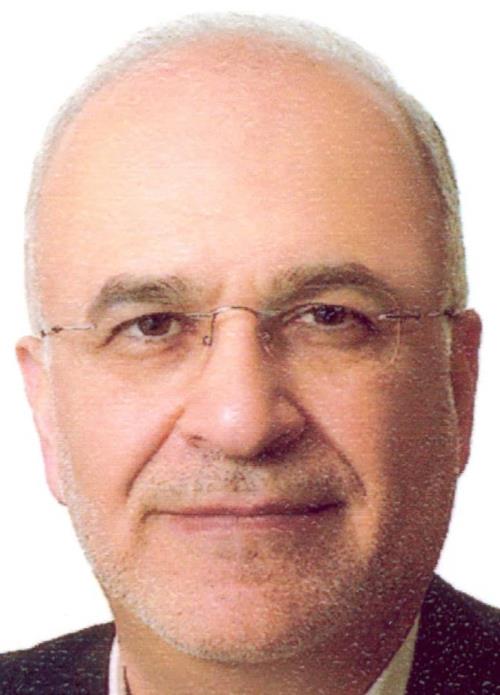.jpg?maxwidth=500)
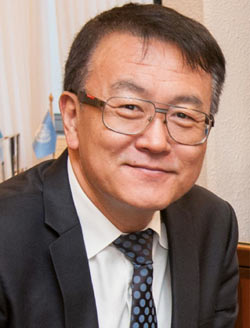
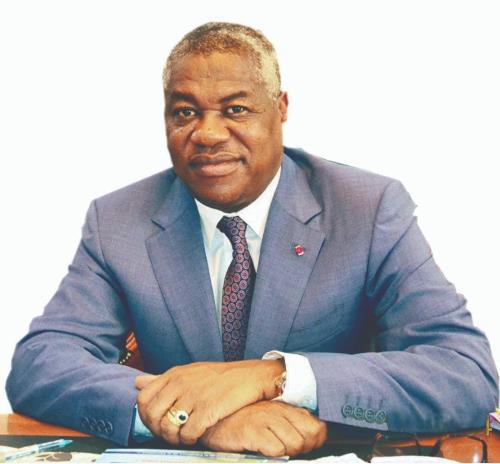
Le Professeur Philémon ZOO ZAME a été nommé par décret présidentiel le 8 Juin 2017, Directeur Général de l’Agence de Régulation des Télécommunications (ART), dont la mission consiste en la régulation, le contrôle et le suivi des activités des opérateurs et des fournisseurs de services des télécommunications électroniques. Grâce à son leadership de proximité, le Directeur Général de l’ART a entrepris depuis sa nomination un vaste chantier de reformes afin de faire du régulateur des Télécommunications, une institution robuste et performante dans l’accomplissement de ses missions régaliennes.
Titulaire d’un Diplôme d’Etudes Approfondies (DEA) en Génie énergétique à l’Ecole Nationale Polytechnique de Yaoundé au Cameroun, et d’Ingénieur d’Etats des Mines à l’Ecole Nationale Supérieure Polytechnique d’Alger en Algérie, il est également titulaire d’un Doctorat PHD en Science de l’Ingénieur à l’Université de Yaoundé 1 et qualifié aux fonctions de Maître de Conférences à la Faculté des Sciences.
Le Pr Philémon ZOO ZAME, membre fondateur du Forum des Institutions de Régulation du Cameroun (FIRC), y occupe actuellement le poste de Conseiller Technique N°2. Il a occupé un certain nombre de postes de haut niveau notamment celui de Secrétaire Général au Ministère des Travaux Publics et d’Attaché au Secrétariat Général de la Présidence de la République du Cameroun.
Dans le secteur des Télécommunications, au niveau sous régional, son expérience dans l’Administration publique Camerounaise, a permis à l’ART d’être désignée Régulateur garant et d’assurer le Secrétariat Permanent de l’Assemblée des Régulateurs des Télécommunications de l’Afrique Centrale (ARTAC). En outre, le Directeur Général participe régulièrement, aux côtés de ses homologues, aux Réunions et Conférences régionales et sous régionales dans le domaine des Télécommunications et TIC (SMART AFRICA, ARTAC, etc.) et internationales de plusieurs organismes nationaux et internationaux (FRATEL, UAT, UIT etc).
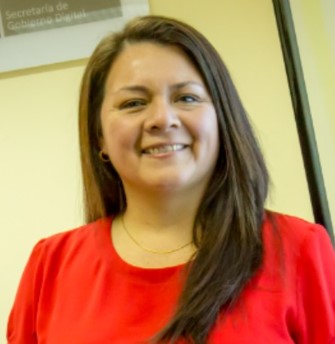
Industrial Engineer from the University of Piura (Peru) with Master's degrees in Systems Engineering from the University of Lima (Peru). Accreditation as a Board Member by CENTRUM Católica, Certification in Citizen-Centered Services and Strategic Business Management from the UPC, International Accreditation in eLearning by APEC Korea and International Certification in Teaching for Comprehension by Wide World from Harvard University.
The Secretary of Government and Digital Transformation has promoted the enactment of the Digital Government Law, the declaration of national interest in digital government, innovation and the digital economy with a territorial focus, the publication of the Study of Digital Government in Peru by the OECD, the creation of the Government and Digital Transformation Laboratory, the creation of the National Digital Transformation System and the establishment of the Digital Confidence Framework in the country.
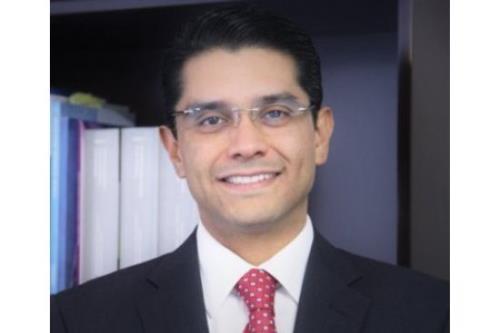
Dr. Felipe Alfonso Hernández Maya has more than 17 years of professional experience in the telecommunications and broadcasting sector. He is currently General Coordinator of User Policy at the Federal Telecommunications Institute (IFT). Previously, he served as General Director of Supervision, which allowed him to know the obligations in charge of the operators, and therefore, the user´s rights.
In the extinct COFETEL, he became widely acquainted with the operation of the institution as Technical Assistant Secretary of the Plenary, as well as various aspects related to broadcasting, having also served as Head of the television concessions and permits area in the Television and Radio Systems Unit.
He has a Law Degree from Universidad Iberoamericana. First Mexican lawyer graduated from a Master's program in Telecommunications Law at the Universidad Francisco Vitoria de Madrid and Universidad Anáhuac. Doctorate in Public Administration from Universidad Anáhuac in conjunction with the Sorbonne University of Paris. He is certified in management by MIT, and recently qualified with a master’s Degree in information technology by the University of Edinburgh in the United Kingdom.
In his current position as General Coordinator of User Policy, he has promoted different projects that have been recognized and awarded internationally and nationally by bodies such as the International Telecommunications Union (ITU), The Latin American Forum of Telecommunications Regulators (REGULATEL) and the specialized magazine U-GOB.

Afke is the Senior Vice President Global Government Affairs & Chief Global Impact at Huawei HQ based in Shenzhen, China. She is leading the company’s Global Impact on Society’s Initiatives. Advancing partnerships with governments, NGOs and International Organisations, and covers topics on Sustainability and Business Ethics; Women in Tech and Digital Inclusion.
Before Afke joined Huawei in 2020 she was the VP and Regional Lead for Europe, Russia and the Commonwealth of Independent States (CIS) for the GSMA. Here Afke was responsible for all Public Policy advocacy activities, Strategic Engagement, Mobile for Development and Technology Programmes (Digital Identity, Internet of Things, Future Networks (5G), Regulatory Modernisation and Spectrum).
Afke is also the former Vice-Chair of the Alliance of Europeans Telecoms and Automotive (EATA) promoting the wider deployment of Connected and Automated Driving in Europe.
Before joining the GSMA, Afke led Microsoft’s EU Institutional Relations Team in Brussels, responsible for Microsoft’s engagement with the EU Institutions, Council of Europe, and the OECD. Here she was also responsible for Microsoft Citizenship Programmes, BizSpark and YouthSpark.
Prior to this, Afke served as a Member of Parliament in the Netherlands and was the spokesperson for Economic Affairs and Innovation, Technology and ICT for the People’s Party for Freedom and Democracy (VVD).
She started her professional career at KPN where she was responsible for its policy interests and governmental affairs in Europe.
Afke studied International Relations and European Law at the University of Amsterdam and has followed the Diplomatic Training Programme at the Netherlands Institute of International Relations.
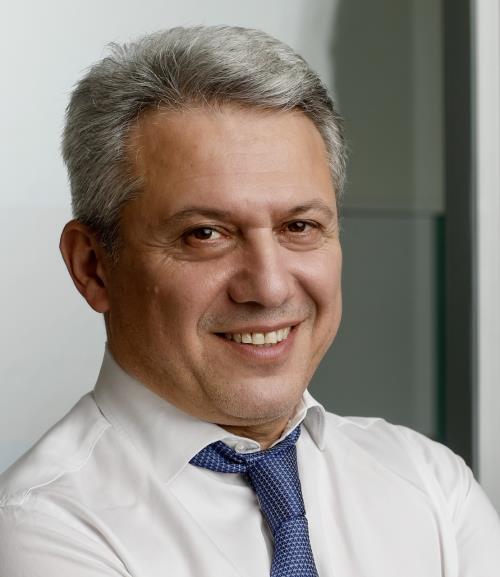
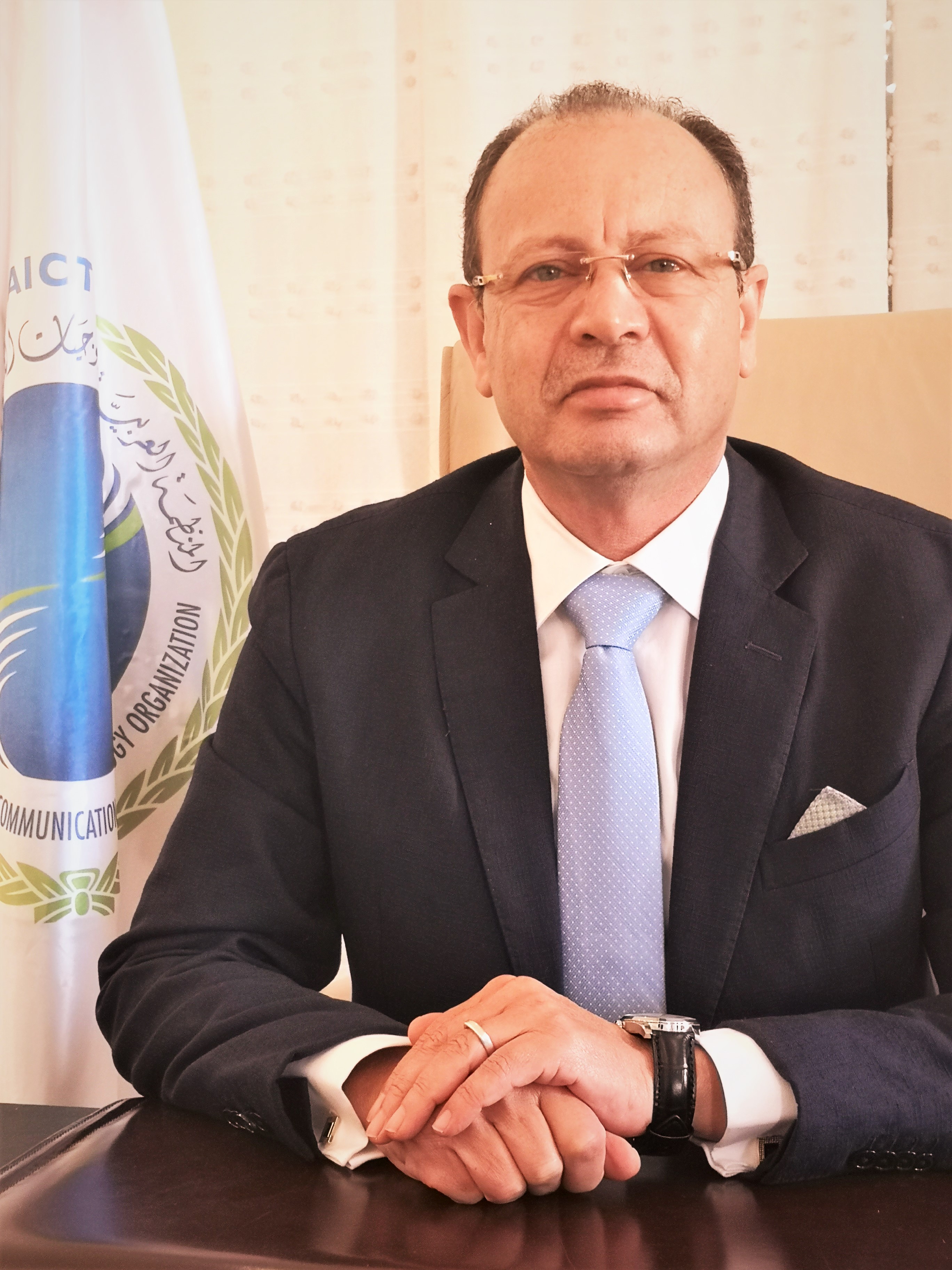
Mr. Ben Amor holds a Master diploma in International Project Management from the "Conservatoire National d’Arts et des Métiers", CNAM - Paris (France), and a Diploma of Engineer from the Naval Academy, AN (Tunisia).
Mr. Mohamed Ben Amor was elected Secretary-General of the Arab Information and Communication Technologies Organization for a first mandate 2016-2019 and re-elected for a second mandate for the period 2020-2023. He launched several regional and international initiatives and programs, which contributed to the increase of the organization's outreach and the joining of many public and private sector institutions as associate members.
Mr. Ben Amor, before being elected SG of AICTO in 2016, has occupied successively the post of Special Advisor to the Minister of Industry and Technologies (2011), Special Advisor to the Minister of Information and Communication Technologies (2012 – 2013) Special Advisor to the Minister of Higher Education Scientific Research and ICT (2014) and Special Advisor to the Minister of Communication Technologies and Digital Economy (2015). He was General Director of Telecommunications Research and Studies Center (2009 – 2010).
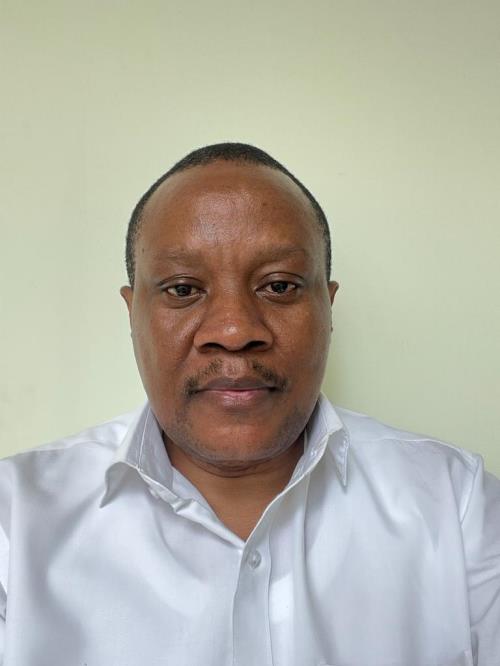
Nazarius aka Nazar is an ICT professional, trainer, and entrepreneur. He was a Senior Technology Officer and Trainer at Foxconn Incorporation, in the USA from 2002-2004. He is an innovator and a social entrepreneur and in 2005 he founded WebPesa Net Company, an integration services company. In 2007 he co-founded Africa Institute of Technology which specializes in ICT,, Entrepreneurship training and strategic transitioning of companies and organizations to confidently adapt to new and emerging technologies.
Nazar joined Internet Society Global in 2013 and he co-founded Internet Society Tanzania Chapter and became General Secretary in 2017. He is currently the President and Principal Officer of Internet Society Tanzania. Nazar is also a convener of Tanzania Internet Governance Forum, and Founder and Organizer of Southern Regional Africa Youth Internet Governance Forum and Southern Africa Regional School of Internet Governance
He is also a promoter of Community Networks to help connect the unconnected in rural and underserved urban communities in Tanzania. He has expertise in ICT Policy, Internet Governance, Internet of Things (IoT). He is a promoter of STEM for Girls, Digital Gender Equity, Digital Rights and Online Trust for Every Netcitizen, Privacy & Personal Data Protection, Online Child Safety, Netpreneurship, and Local Content Development and Monetization. He is believer of Open Source Technologies He is an enthusiast on IIoT, Artificial Intelligence, Machine Learning, Augmented Reality (AR), Virtual Reality(VR) and Metaverse-logy
-
 C5. Building confidence and security in use of ICTs
C5. Building confidence and security in use of ICTs
-
 Goal 1: End poverty in all its forms everywhere
Goal 1: End poverty in all its forms everywhere
-
 Goal 2: End hunger, achieve food security and improved nutrition and promote sustainable agriculture
Goal 2: End hunger, achieve food security and improved nutrition and promote sustainable agriculture
-
 Goal 3: Ensure healthy lives and promote well-being for all
Goal 3: Ensure healthy lives and promote well-being for all
-
 Goal 4: Ensure inclusive and equitable quality education and promote lifelong learning opportunities for all
Goal 4: Ensure inclusive and equitable quality education and promote lifelong learning opportunities for all
-
 Goal 5: Achieve gender equality and empower all women and girls
Goal 5: Achieve gender equality and empower all women and girls
-
 Goal 7: Ensure access to affordable, reliable, sustainable and modern energy for all
Goal 7: Ensure access to affordable, reliable, sustainable and modern energy for all
-
 Goal 8: Promote inclusive and sustainable economic growth, employment and decent work for all
Goal 8: Promote inclusive and sustainable economic growth, employment and decent work for all
-
 Goal 9: Build resilient infrastructure, promote sustainable industrialization and foster innovation
Goal 9: Build resilient infrastructure, promote sustainable industrialization and foster innovation
-
 Goal 10: Reduce inequality within and among countries
Goal 10: Reduce inequality within and among countries
-
 Goal 11: Make cities inclusive, safe, resilient and sustainable
Goal 11: Make cities inclusive, safe, resilient and sustainable
-
 Goal 16: Promote just, peaceful and inclusive societies
Goal 16: Promote just, peaceful and inclusive societies